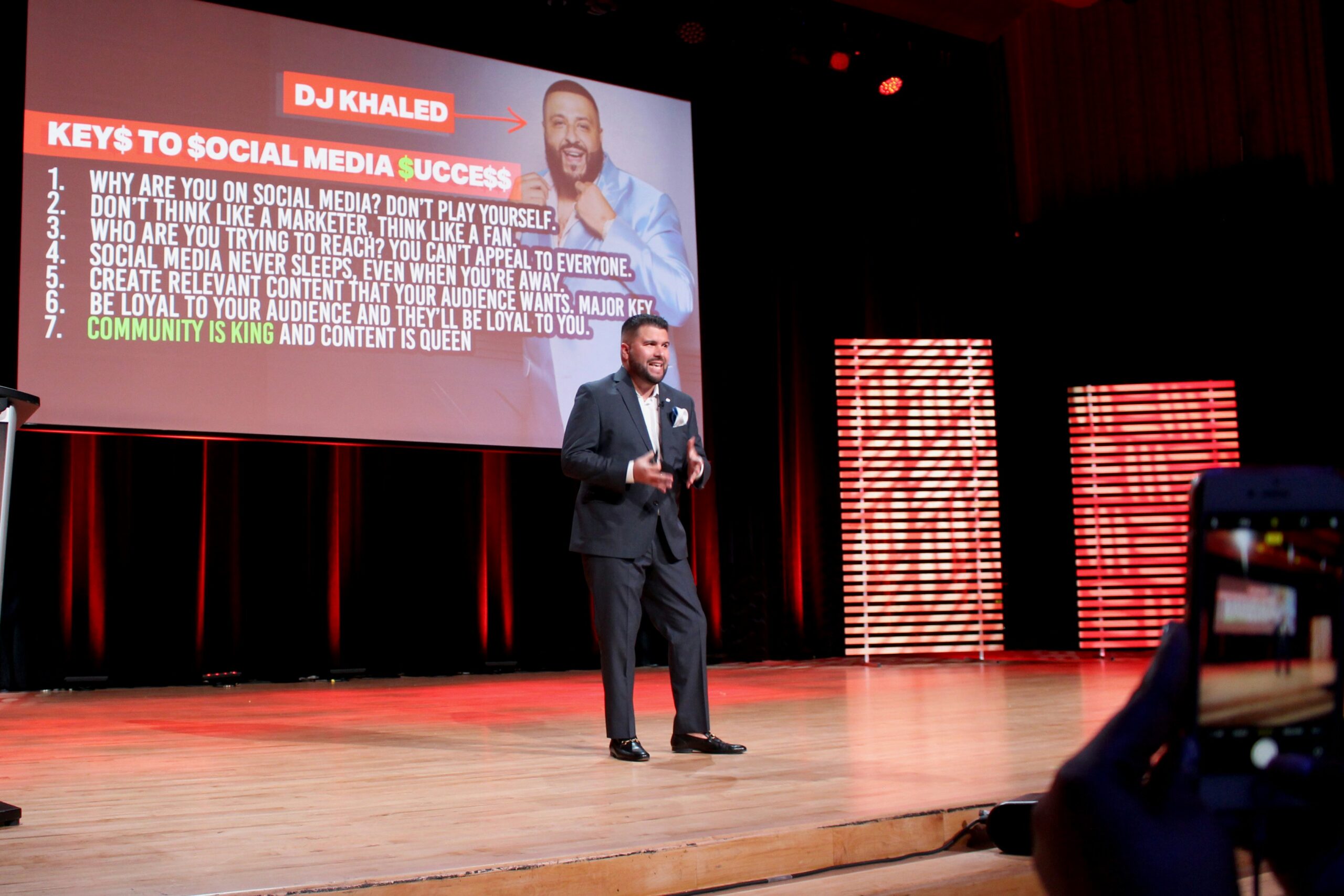Evolving Landscapes: Adapting Traditional Marketing in the Digital Age
July 30, 2025 | by qqvmedia.com


The Transformation of Traditional Marketing
Traditional marketing has long served as the cornerstone of business promotion, encompassing methods such as print advertising, television commercials, and direct mail campaigns. Historically, businesses relied on these avenues to reach a broad audience, fostering brand recognition and driving sales. However, as we entered the digital age, the marketing landscape has undergone significant transformation, propelled by advancements in technology and shifts in consumer behavior.
The rise of the internet and mobile technology has led to a paradigm shift in how consumers interact with brands. Traditional marketing techniques, such as print advertisements, often lacked measurable outcomes, making it challenging for marketers to assess their effectiveness. In contrast, digital marketing allows for real-time analytics, enabling businesses to track engagement, conversion rates, and ROI with precision. Social media, in particular, has reshaped the marketing arena, requiring more dynamic and responsive approaches from marketing agencies.
Television commercials, once a dominant force in consumer awareness campaigns, are now competing with on-demand streaming services and online video platforms. This evolution has resulted in shorter attention spans among viewers and an increasing reliance on targeted marketing strategies. Brands are now employing data-driven insights to tailor their messages, ensuring that marketing content is relevant and engaging. Direct mail, while still utilized by certain segments, faces an uphill battle against the immediacy of digital communication channels where consumers expect instant interactions.
As a result of these changes, marketers must adapt to the expectations of today’s consumers, who prefer personalized, engaging interactions. Traditional marketing agencies are now integrating digital methodologies into their strategies, emphasizing the importance of omnichannel marketing to reach audiences effectively. This blend of traditional and digital marketing underscores the necessity for companies to remain flexible and innovative, ensuring continued relevance in an ever-evolving marketplace.
Impact of Technology on Consumer Engagement
In recent years, the rapid advancement of technology has significantly transformed consumer engagement, reshaping how brands connect with their audiences. Social media has emerged as a dominant platform, allowing brands to communicate directly with consumers in real time. This shift has facilitated a more interactive approach to marketing, as businesses can engage in conversations, receive immediate feedback, and foster a sense of community among their followers.
Mobile marketing has further enhanced this engagement by placing marketing messages directly in the hands of consumers. With the proliferation of smartphones, brands have the opportunity to reach their customers anytime and anywhere. This immediacy garners higher engagement rates; for instance, customers are more likely to respond to personalized promotions received via mobile apps or SMS compared to traditional methods such as email marketing.
Data analytics has also played a crucial role in this evolution. The ability to collect and analyze vast amounts of consumer data enables marketing agencies to tailor their strategies to meet specific preferences and behaviors. By understanding customer journeys and purchasing patterns, brands can create targeted campaigns that resonate more effectively with their audiences, ultimately leading to increased conversion rates.
Several successful tech-driven marketing campaigns exemplify the impact of these advancements. For example, a leading global beverage company launched a social media challenge that encouraged user-generated content, resulting in extensive brand visibility and engagement. Similarly, e-commerce platforms utilizing data-driven insights have seen substantial growth in consumer loyalty, illustrating how technology not only facilitates interaction but also builds lasting connections with consumers.
In conclusion, technology has revolutionized consumer engagement in unprecedented ways, enabling brands to connect more personally and immediately with their audiences. As marketing continues to evolve, leveraging these advancements will be essential for organizations aiming to thrive in the digital age.
Strategies to Adapt Traditional Marketing Approaches
In the rapidly evolving landscape of marketing, traditional methods must be reassessed to meet contemporary demands. To effectively bridge the gap between conventional techniques and modern expectations, marketers can employ several strategies that integrate digital components into their campaigns.
One effective approach is to enhance traditional marketing tactics by incorporating digital elements. For instance, print advertisements can feature QR codes that direct consumers to online content or promotions, creating a seamless transition between offline and online experiences. Additionally, integrating social media platforms with traditional advertising channels can amplify reach and engagement. For example, a television commercial can prompt viewers to participate in a social media contest, fostering interaction and expansive visibility.
Cross-channel marketing efforts also play a vital role in adapting traditional methods. By coordinating campaigns across multiple channels, from television to email to social media, brands can create a cohesive message that resonates with diverse audiences. A marketing agency that embraces this strategy can ensure that each communication builds on the other, reinforcing brand identity and encouraging customer interaction. This coordinated approach also enhances the effectiveness of traditional methods, as they can now leverage the immediacy and broad audience of digital platforms.
Emphasizing data-driven decision-making is another crucial strategy for modernizing traditional marketing. Marketers should analyze consumer data to understand preferences, behaviors, and trends, which allows for tailored campaigns that resonate with target audiences. Utilizing analytics tools can enhance the effectiveness of traditional marketing techniques and enable agencies to stay ahead of market demands. By directing resources toward methods that yield measurable results, marketing professionals can revitalize classic techniques successfully.
In conclusion, adapting traditional marketing approaches requires a thoughtful integration of digital strategies, cross-channel efforts, and informed decision-making anchored in data analysis. These tactics enable marketers to not only maintain relevance but also to thrive in an increasingly digital world.
Future Trends in Marketing: Preparing for Tomorrow
The marketing landscape is continuously evolving, driven by rapid advancements in technology and shifting consumer preferences. As businesses strive to stay relevant, understanding future trends in marketing becomes imperative. Emerging technologies such as artificial intelligence (AI), virtual reality (VR), and personalized marketing strategies will play pivotal roles in shaping the marketing agency of tomorrow. Marketers need to adopt a forward-thinking approach to navigate these changes effectively.
Artificial intelligence is transforming the way marketing agencies interact with customers. By leveraging AI tools, marketers can analyze vast amounts of data to gain insights into consumer behavior. This predictive analytics capability allows for more effective targeting, ensuring that marketing campaigns reach the right audience at the right time. Furthermore, AI enables automation of repetitive tasks, freeing up time for marketing professionals to focus on creative strategies that foster engagement and brand loyalty.
Virtual reality is another avenue that opens up new possibilities in marketing. Brands are now using VR to create immersive experiences that engage consumers on a deeper level. For instance, a marketing agency can develop VR campaigns that allow potential customers to interact with products in a simulated environment. This innovative approach not only enhances brand perception but also improves customer satisfaction by providing a unique and memorable experience.
Personalization is no longer just an option but a necessity in today’s market. Consumers expect tailored experiences that cater to their individual preferences. Marketing agencies must leverage data-driven insights to deliver messages that resonate with target audiences. By employing strategies such as dynamic content and personalized recommendations, marketers can foster stronger relationships with consumers, ultimately leading to increased conversions.
As we look to the future, industry experts suggest that marketers must remain agile and adaptable. By embracing these trends and continuously evolving their strategies, businesses can position themselves to thrive in the ever-changing digital landscape. Focusing on innovations such as AI, VR, and personalization will help marketers not only keep pace with industry changes but also capitalize on new opportunities, ensuring their relevance in the future of marketing.
RELATED POSTS
View all


